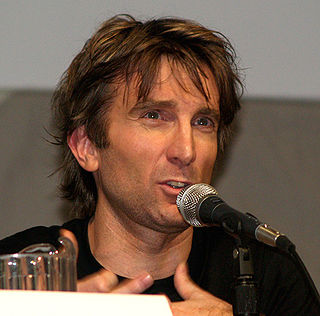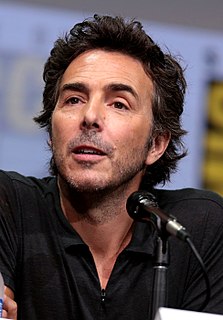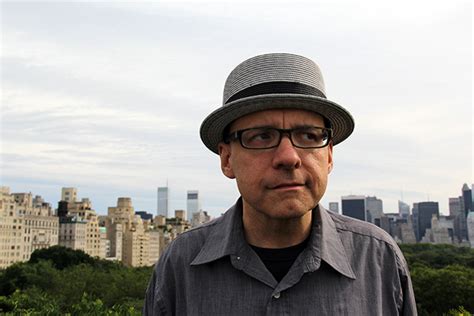A Quote by Maurice Sendak
If I have an unusual gift, it's not that I draw particularly better than other people - I've never fooled myself about that. Rather it's that I remember things other people don't recall: the sounds and feelings and images - the emotional quality - of particular moments in childhood. Happily an essential part of myself - my dreaming life - still lives in the light of childhood.
Related Quotes
I find myself drawn to that period where children are about to leave childhood behind. When you're 12 years old, you still have one foot in childhood; the other is poised to enter a completely new stage of life. Your innocent understanding of the world moves towards something messier and more complicated, and once it does you can never go back.
You do remember things that people say in movies. You remember particular lines and things that are funny. But, you also remember really strong images. Images have a way of bypassing your brain and hitting you emotionally. There are so many things from movies that are remembered, that are just looks on people's faces or incredible vistas or beautiful pictures. That is a very important part of cinema.
I remember when I came out of an exam thinking I had done well and then I had a clue that maybe one answer was wrong, I remembered that I rather stop knowing, stop thinking about it, appreciating life instead. So first, it was just a memory. But then I realized that in life, it's a much more general sentiment - that instead of waiting for other people's judgment, I'd rather focus on my own feelings, that everything is fine. To go on with my life rather than anticipating other people's judgements that might be negative.
I have to go with what I do, and what I do has more to do with what people say to each other than telling a story through images. Of course, you're trying to do both. And there are some people who are brilliant at it, but I don't consider myself to be particularly good at it. My mind gets into a verbal mode.
It is self-evident that St. Louis affected me more deeply than any other environment has ever done. I feel that there is something in having passed one's childhood beside the big river, which is incommunicable to those people who have not. I consider myself fortunate to have been born here, rather than in Boston, or New York, or London.
For my part, when I enter most intimately into what I call myself, I always stumble on some particular perception or other, of heat or cold, light or shade, love or hatred, pain or pleasure. I never can catch myself at any time without a perception, and never can observe anything but the perception.
We're taught to find the antecedents to our adult failures in childhood traumas, and so we spend our lives looking bacwards and pointing fingers, rather than bucking up and forging ahead. But what if your childhood was all a big misunderstanding? An elaborate ruse? What does that say about failure? Better yet, what does that say about potential?
When I'm feeling proud of myself, I should remember to ask myself why I think I am of any value at all. I have done nothing that a hundred thousand other people couldn't do, and most of them would probably do it better, and they probably wouldn't feel so self-important about it. I should always be ashamed of myself.
I might find that I have a habit of being jealous and comparing myself with other people and riveting my attention on how much somebody else is accomplishing or doing, or how much better they are at such and such. First, I might recognize the story - the mental images and internal dialogue - and say, "Okay, comparing mind." Then, rather than staying caught in the content, I'll bring my attention into my body and open to the immediate feelings that are there.
I am myself a professional creator of images, a film-maker. And then there are the images made by the artists I collect, and I have noticed that the images I create are not so very different from theirs. Such images seem to suggest how I feel about being here, on this planet. And maybe that is why it is so exciting to live with images created by other people, images that either conflict with one's own or demonstrate similarities to them.






































